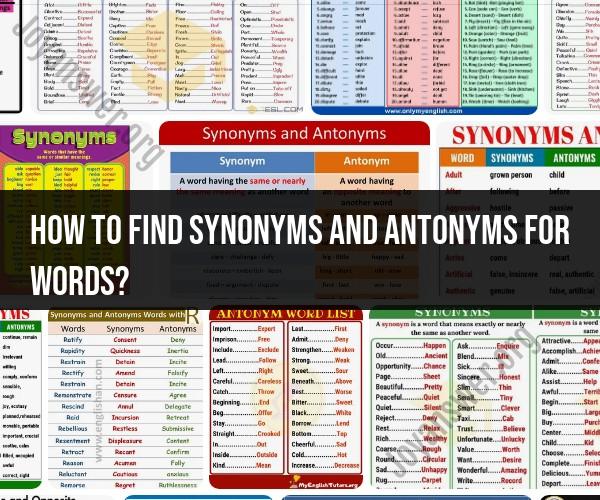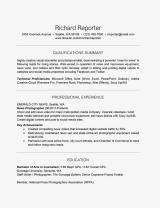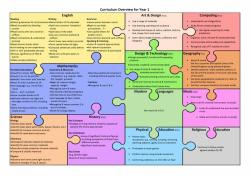How to find synonyms and antonyms for words?
Finding synonyms (words with similar meanings) and antonyms (words with opposite meanings) for words is a valuable skill for improving your vocabulary and enhancing your writing and communication. Here are some effective ways to find synonyms and antonyms for words:
1. Use a Thesaurus:
- A thesaurus is a valuable reference tool for finding synonyms and antonyms. Both print and online thesauruses are readily available. You can look up a word and find a list of synonyms and antonyms.
2. Online Thesaurus Websites:
- Numerous online thesaurus websites and apps are available, making it easy to search for synonyms and antonyms. Some popular options include Thesaurus.com, Synonym.com, and Power Thesaurus.
3. Built-in Thesaurus in Word Processors:
- Many word processing software programs (e.g., Microsoft Word, Google Docs) have a built-in thesaurus feature. You can right-click on a word and select "Synonyms" to access suggestions.
4. Language and Vocabulary Apps:
- Language learning and vocabulary-building apps often include synonym and antonym features. Apps like Vocabulary.com and Merriam-Webster's Dictionary offer these functions.
5. Read Widely:
- Reading books, articles, and diverse types of content exposes you to a wide range of vocabulary. Pay attention to how authors use synonyms and antonyms to enhance their writing.
6. Contextual Understanding:
- Understanding the context in which a word is used is essential for selecting the most appropriate synonyms or antonyms. Context helps you choose words that fit the meaning and tone of your sentence.
7. Language Reference Books:
- Comprehensive language reference books, such as the "Oxford English Dictionary," provide detailed information about word meanings, origins, synonyms, and antonyms.
8. Educational Websites and Blogs:
- Educational websites and language-focused blogs often provide articles and resources on improving vocabulary, including tips on finding synonyms and antonyms.
9. Language Communities and Forums:
- Online forums and communities, such as Stack Exchange and Reddit, have language-focused sections where users can ask for help finding synonyms or antonyms for specific words.
10. Word Games and Puzzles:- Playing word games like crossword puzzles, Scrabble, or word search puzzles can help you discover synonyms and antonyms as you work with words in different contexts.
11. Learn from Context:- Pay attention to how words are used in sentences and paragraphs when you encounter them in reading. Context can provide clues about synonyms and antonyms.
12. Experiment in Writing:- Practice using synonyms and antonyms in your writing. Experiment with different words to see how they change the tone and meaning of your sentences.
When using synonyms and antonyms in your writing or communication, be mindful of nuances in meaning and tone. Not all synonyms are perfect substitutes for each other, and the choice of words should align with the specific message you want to convey. Developing a rich vocabulary through consistent practice and exploration of synonyms and antonyms can enhance your ability to express ideas clearly and effectively.
Synonyms and Antonyms: The Art of Word Exploration
Synonyms are words or phrases that have the same or nearly the same meaning. Antonyms are words or phrases that have opposite meanings.
Synonyms and antonyms can be used to make writing more interesting and varied. They can also be used to clarify the meaning of a sentence or to emphasize a point.
For example, instead of saying "The house was big," you could say "The house was spacious." Or, instead of saying "The man was sad," you could say "The man was melancholy."
Antonyms can be used to create contrast or to show the opposite side of an argument. For example, you could say "The rich get richer, while the poor get poorer." Or, you could say "Love is the opposite of hate."
Wordplay Wonderland: Discovering Synonyms and Antonyms
Synonyms and antonyms can be found in all kinds of places, including:
- Dictionaries
- Thesaurus
- Newspapers and magazines
- Books
- Movies and TV shows
- Songs and poems
You can also find synonyms and antonyms by simply paying attention to the language you use in everyday life. For example, if you say "I'm happy," you could also say "I'm delighted" or "I'm overjoyed." Or, if you say "I'm angry," you could also say "I'm furious" or "I'm livid."
A Thesaurus Tale: Unearthing Word Equivalents and Opposites
A thesaurus is a book or website that lists synonyms and antonyms for words. It can be a helpful tool for finding the right word to use in your writing.
To use a thesaurus, simply look up the word you want to find synonyms and antonyms for. The thesaurus will provide you with a list of related words. You can then choose the word that best fits your meaning and context.
Here are some tips for using a thesaurus:
- Be specific when looking up words. The more specific you are, the more relevant the results will be.
- Consider the context in which you will be using the word. The meaning of a word can change depending on the context.
- Pay attention to the nuances of different words. Synonyms may have slightly different shades of meaning.
- Don't overuse the thesaurus. It's important to use words naturally in your writing.
Synonyms and antonyms are powerful tools that can help you improve your writing. By understanding how to use them effectively, you can make your writing more interesting, varied, and clear.











